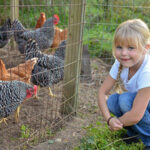
Judging from numerous online posts, many people jump into chicken keeping without giving enough thought to what’s involved. As a result, you see lots of posts listing “things I wish I’d known.” Or along the lines of “advice to newbie chicken keeper.” Interestingly, these lists frequently repeat the same things. In the spirit of being […]
Continue Reading
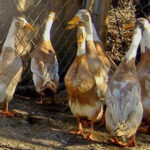
The Runner duck is an ancient breed known in the East Indies for at least 2,000 years. Its excellence lies in being a terrific layer that’s agile enough to easily herd over long distances. Runner ducks were traditionally kept in pens overnight. After the hens laid their eggs in the morning, the ducks were herded […]
Continue Reading
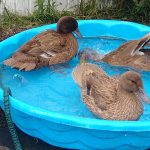
The Khaki Campbell duck came about when Adele Campbell of Gloucestershire, England, wanted a dual-purpose duck that laid well, but with a good-size body for roasting. The resulting duck breed first appeared in the late 1800s. The ducks’ buff-color plumage reminded Ms. Campbell of army uniforms, hence the name Khaki Campbell. Introduced to the United […]
Continue Reading
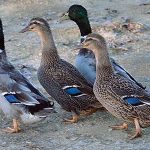
The Rouen duck originates from France, where farmers have raised the breed for hundreds of years. Rouens arrived in the United States in 1850 and were admitted to the American Standard of Perfection in 1874. Physical Attributes Rouens look like Mallards, only they are considerably larger. And they don’t fly nearly as well, making them […]
Continue Reading
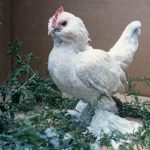
Nearly every chicken breed has a bantam version. But some bantam breeds have no larger counterpart. The latter are true bantams. Cackle Hatchery® offers the following true bantam chicken breeds: Belgian d’Anvers Belgian d’Anvers bantams get their name from the Belgian municipality of Antwerp, which is “Anvers” to the French. The word d’Anvers therefore means […]
Continue Reading

Mystery shrouds the origins of the Cayuga duck. Among the many legends, one claims the breed came from a pair of wild ducks in New York. Another claims the Cayuga derives from the ancient Black duck of Lancashire in the United Kingdom. Whatever the case, the duck gets its name from a Native American tribe […]
Continue Reading
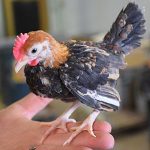
First, let’s establish that “bantam” is not a specific chicken breed. Rather, the word refers to a collection of breeds that are smaller than the usual egg-and-meat chicken breeds. A typical bantam weighs no more than two pounds, leading practical chicken keepers to wonder, “What’s the point?” Bantams don’t lay exceptionally well, and the eggs […]
Continue Reading
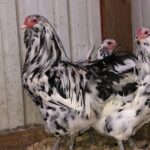
- Ermine Ameraucanas Chicken – Sold as Baby Chicks Only
Minimums – Not Sexed = 3
Females = 3
Male = 1
Total of 3 birds to ship
Seasonal/Shipped Early Feb thru Early August.
Limit of 5
Continue Reading
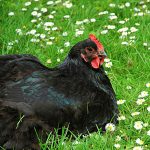
The definition of black chicken breeds depends on who’s talking. The term might refer to a breed that’s truly all black — feathers, comb and wattles, beak, shanks and feet, skin, and even bones. But some chicken breeds with black skin and other body parts have varieties with alternative plumage colors besides black. Many chickens […]
Continue Reading

Homegrown eggs are so tasty they are unlikely to sit around long enough to spoil. However, eggs do occasionally go off. Every chicken keeper should know how to tell a good egg from a bad egg. Why an Egg Goes Bad A bad egg is generally one that has been contaminated, rendering it inedible or […]
Continue Reading










